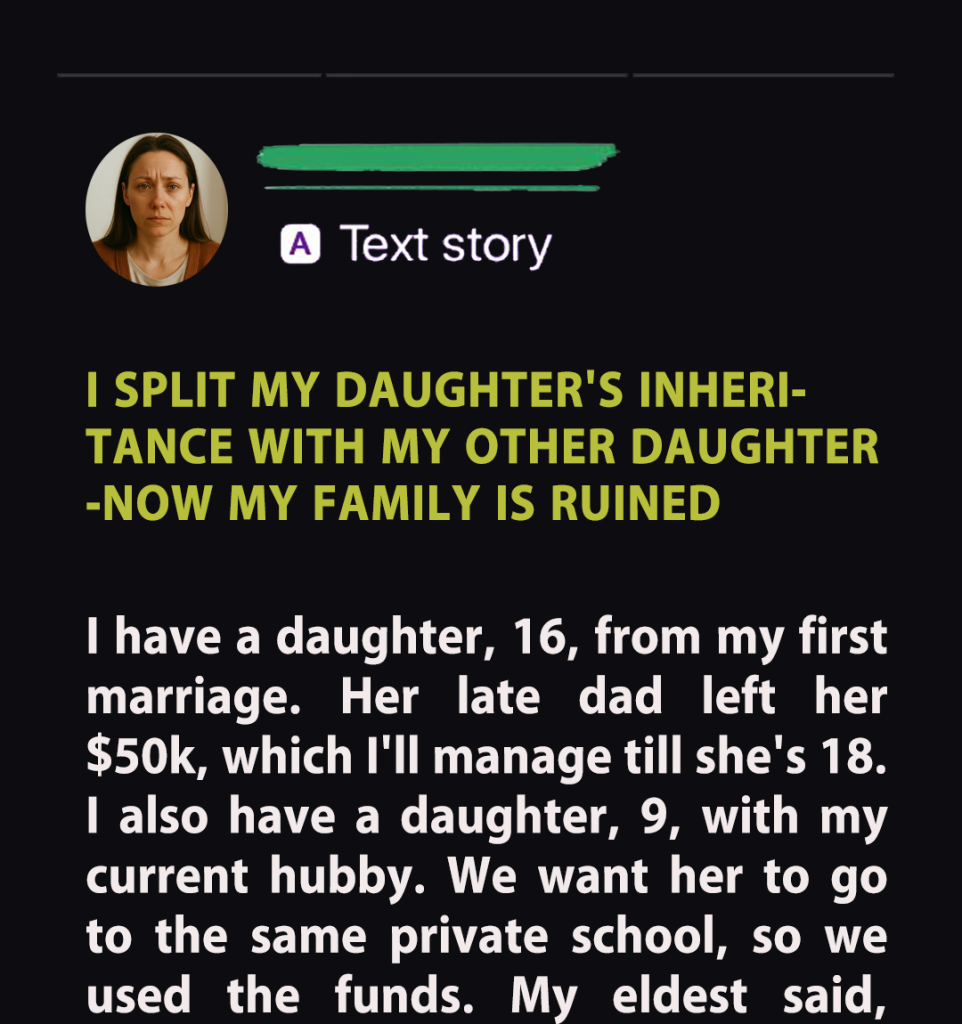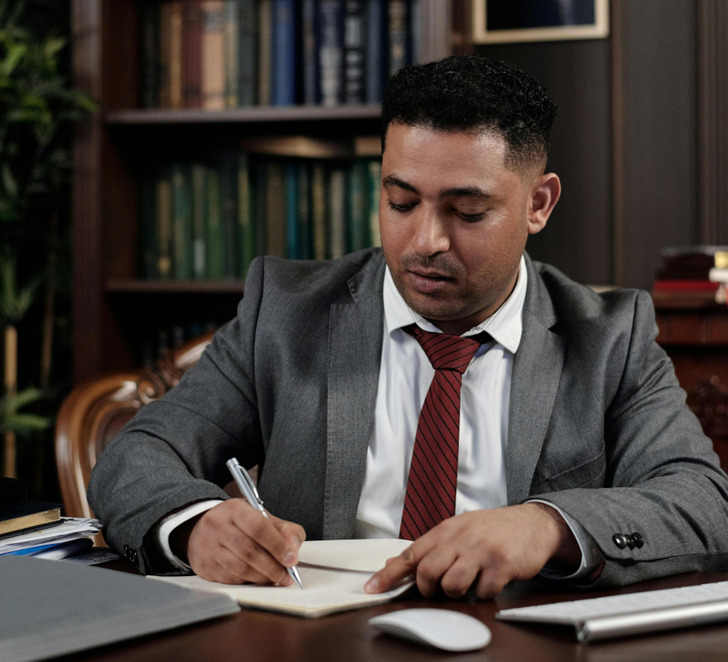
Family money matters often stir strong emotions, especially when children and fairness are involved. What begins as a well-intentioned decision can quickly turn into conflict, resentment, and even legal trouble. These stories show how fragile trust can be when finances and relationships collide.
Recently, a reader reached out to Bright Side with a letter about a dramatic situation involving her daughter’s inheritance and the fallout that followed.
Chelsea’s letter:
Hi Bright Side,
My name is Chelsea. I’m a 36-year-old housewife and mother of two.
I also have another daughter, who is 9, with my current husband. We want our youngest child to have the same good education as her sister, so we decided to send her to the same private school.
My husband is an employee, and his humble salary doesn’t allow us to pay for the school, so we used funds from Mila’s inheritance.
When she found out, the only thing she said was “You’ll regret this.”
But we didn’t really take her words too seriously.

But the next day, I froze when I found my youngest child crying uncontrollably. I’ve never seen her this way before.
She told me that her sister had said, “Mommy and daddy are about to go to jail because they stole from me.”
A few hours later, cops showed up at my door saying that Mila had reported me. I was horrified.
Now lawyers are involved, and Mila keeps saying that I am a thief. A court hearing is coming up soon.
Even though I haven’t done anything wrong legally, I still might lose Mila’s custody, and she might go live with her dad’s mother because she doesn’t want to see me anymore.
I didn’t want all of this to happen. I was just trying to be fair and give both my daughters a good life.
Am I a bad mother for doing this?
Chelsea
Thank you, Chelsea, for your letter and for sharing what you’re going through. We understand this isn’t easy, and we’ve prepared some advice with your situation in mind. We’re here to support you and talk it through whenever you need.
Reframe Mila’s Inheritance as Her Project

You had NO RIGHT to do that. You defied her late father’s wishes and stole from her. I’m glad she called you on it. You need to pay back plus interest every dollar you stole. Your second daughter’s expenses are not your older daughter’s responsibility. They are yours and your current husband’s. If you can’t afford private school etc then you can’t afford it. Not the end of the world. Betraying your older daughter’s trust may have destroyed your relationship. After you repay her, she may or may not forgive you but she will never forget what you did. You messed up.
- Why this matters: Mila sees the inheritance as something you took. She needs to feel it’s still hers.
- Action: Sit with Mila and a financial planner. Present the $50k as her “future project” (education, career, independence). Ask her input on how it should be used.
Even if part is gone, giving her a co-decision role shows respect and restores control. - Outcome: She shifts from seeing you as a thief to seeing herself as manager of her father’s gift.
Use the “Story Swap” Technique

- Why this matters: Mila has cast you as the villain. She doesn’t see the impossible position you were in.
- Action: Ask her to imagine herself as the mom: two kids, one with a large inheritance, one without. Then ask: “What would you do to be fair?” Let her speak freely, without correcting.
- Outcome: This role-reversal plants the idea that the situation is more complex than “mom = thief.”
Create a Symbolic Gesture of Restitution

- Why this matters: Teens need something visible to rebuild trust. Words alone won’t undo the betrayal.
- Action: Write and sign a note acknowledging how much was used and promise repayment. Open a savings account in her name and deposit even a small amount. Present it as proof of accountability.
- Outcome: Mila sees a concrete gesture. Even if modest, the act itself can restore trust.
Redirect the Courtroom Narrative

- Why this matters: The hearing could define your future with Mila. Judges often care about intent and responsibility, not just money.
- Action: Gather witnesses (teachers, neighbors, school staff) to confirm your decisions were about fairness and education. Document how every dollar went strictly to tuition, not luxuries.
- Outcome: You soften legal consequences, protect custody, and shift the focus from “theft” to parental intent.


